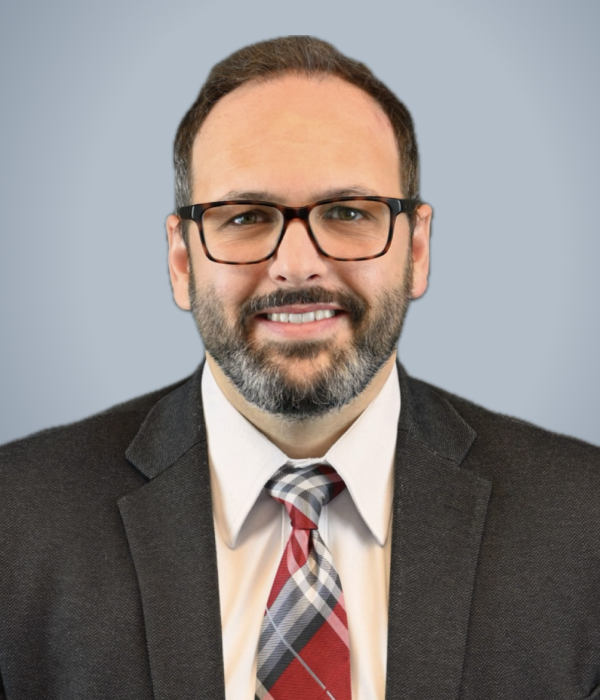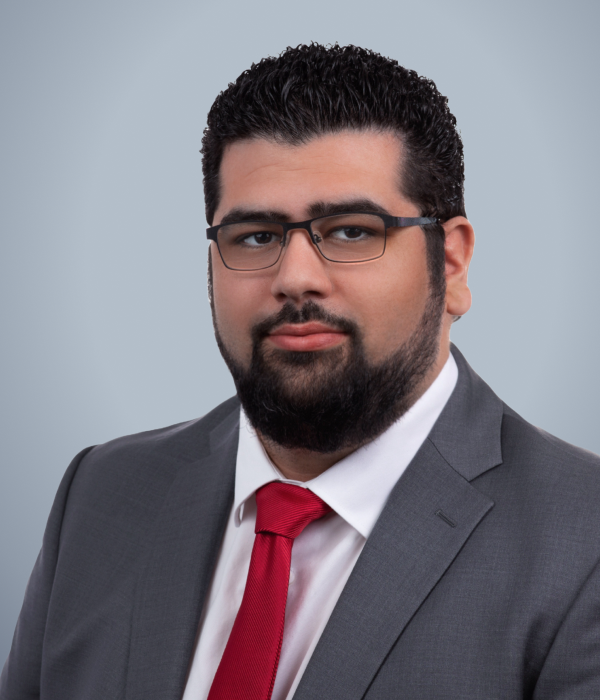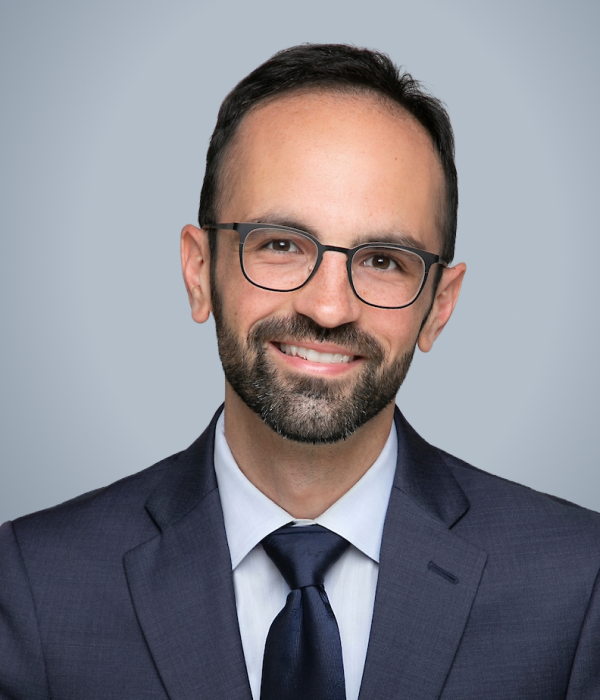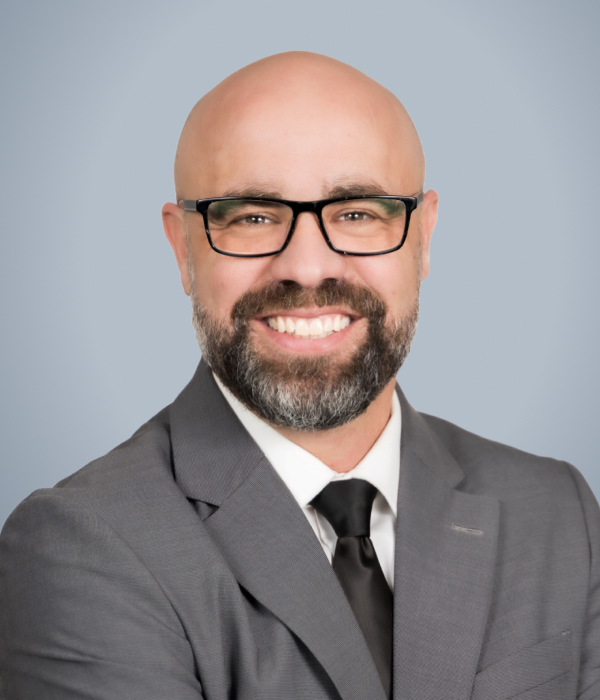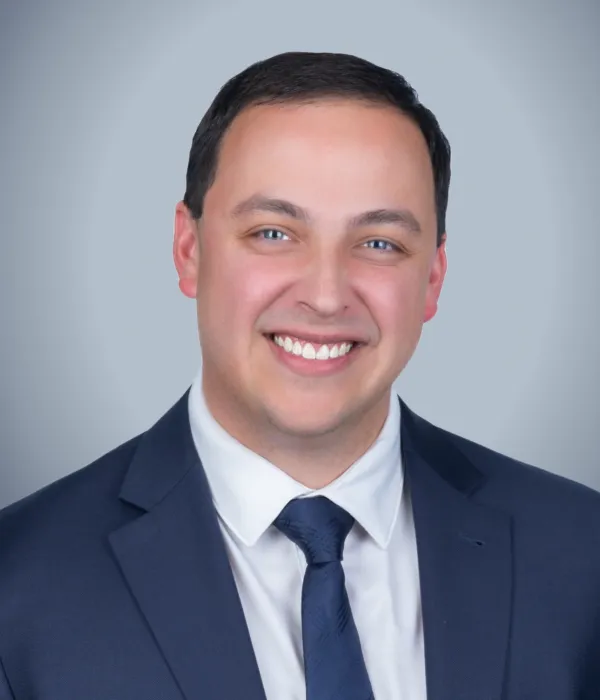
Portland Probate Attorney
While losing a loved one is never easy, you may have to deal with settling their estate in Portland. The probate process can be complex, confusing, and frustrating. It can also be overwhelming to handle the process on your own while you’re also grieving for your loss.
A Portland probate attorney can provide support and guidance and relieve a lot of your stress and burden. They can also protect your rights while ensuring your loved one’s final wishes are respected.
Read on to learn more about the probate process and your roles and responsibilities in it. You should also understand the importance of having a probate attorney represent you and the benefits they can offer.
The Portland probate attorneys at Dickson Frohlich Phillips Burgess have helped hundreds of clients resolve probate issues and settle their loved ones’ estates. Contact us today for a confidential consultation and discover how we can help.
Portland Probate Attorney Guide
- What Happens If Someone Dies without a Will in Portland?
- Are All of a Decedent’s Property and Assets Subject to Probate?
- What Do I Need to Do as Executor of a Will in Portland?
- What Are Some Issues that Can Arise During Probate?
- Portland Probate FAQ
- Contact an Experienced Portland Probate Lawyer Today
What Is Probate in Portland?
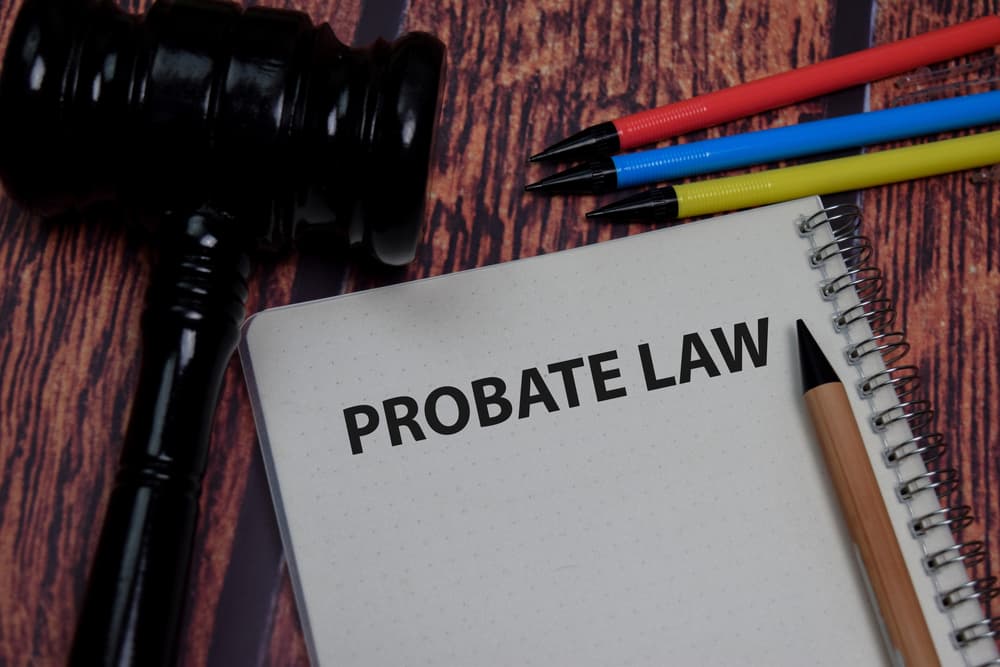
Probate is a legal process that takes place after someone passes away. During the process, the court distributes the deceased person’s assets to heirs and beneficiaries. Also, the process settles any outstanding debts the individual had.
Here is a general overview of the probate process in Portland:
Initiating Probate
- Typically, probate is initiated by the filing of a petition in the county where the deceased person (decedent) lived at the time of their death.
- If the decedent had a will, the document is usually submitted to the court along with the petition. If there is no will, the estate is considered intestate, and state laws will govern the distribution of assets.
Appointment of Personal Representative
- The court appoints a personal representative to oversee the probate process. It will appoint an executor if there is a will, or an administrator if there is no will.
- The personal representative is responsible for identifying and gathering the decedent’s assets, notifying creditors, paying debts, and distributing the remaining assets to heirs.
Notice to Creditors
- The personal representative must notify creditors of the probate proceedings, allowing them a specified period to file claims against the estate.
Inventory and Appraisal
- The personal representative compiles an inventory of the decedent’s assets and may need to have certain assets appraised to determine their value.
Debt Settlement
- The personal representative uses estate funds to pay off valid debts and expenses, including funeral costs, outstanding bills, and taxes.
Distribution of Assets
- After settling debts, the remaining assets are distributed to the heirs or beneficiaries according to the terms of the will or intestate succession laws.
Closing the Estate
- Once they’ve paid all debts and distributed assets, the personal representative submits a final accounting to the court for approval.
- After court approval, the estate is considered closed.
The probate process can take a long time and may involve court appearances and legal fees. In some cases, people use estate planning tools, such as trusts, to avoid or minimize the probate process.
Laws and procedures can change, so it’s advisable to consult with a local attorney or legal professional in Portland for the most accurate and up-to-date information regarding probate in your area.
What Happens If Someone Dies without a Will in Portland?

If someone dies without a will in Portland, Oregon, their estate will go through the process of intestate succession.
Intestate succession in Oregon is how the state determines how to distribute the deceased person’s assets among their heirs when they left no will. Here’s an overview of what happens when someone dies without a will in Portland:
Appointment of an Administrator
In cases of intestacy, the court will appoint an administrator to oversee the probate process. The administrator is typically a close family member, such as a surviving spouse, child, or other next of kin.
Distribution of Assets
Oregon’s intestate succession laws determine how the deceased person’s assets will be distributed among their heirs.
The order of inheritance is generally:
- Spouse and/or domestic partner: If the deceased person is survived by a spouse but no children, the spouse generally inherits the entire estate. If there are children, the spouse may inherit a portion of the estate (spousal share), with the rest going to the children.
- Children: If there are surviving children but no spouse, the estate is usually divided equally among the children (children’s share).
- Parents: If there are no surviving spouses or children, the estate may go to the deceased person’s parents (parent’s share). Note that a parent may forfeit their right to a parent’s share of the assets if they had terminated their parental rights, or deserted or neglected the individual.
- Siblings: If there are no surviving spouses, children, or parents, the estate may be distributed among the deceased person’s siblings or other relatives (sibling’s share).
- Other relatives: If the decedent had no other surviving family members listed above, their estate may pass to their grandparents or other extended family members.
If someone dies without any relatives, their estate may escheat to the State of Oregon. In this case, the state will receive the decedent’s assets.
The specific distribution of assets may vary depending on the family structure and relationships. If you have concerns or questions about the complex intestate succession process in Portland, speak with a probate attorney who can provide guidance based on the specific details of the case and current Oregon laws.
Are All of a Decedent’s Property and Assets Subject to Probate?

No. Certain property and assets bypass the probate process in Portland.
Some common examples include:
- Jointly Owned Property: Assets held in joint tenancy or tenancy by the entirety typically pass directly to the surviving joint owner(s) outside of probate.
- Assets with Designated Beneficiaries: Life insurance policies, retirement accounts (e.g., IRAs, 401(k)s), and payable-on-death (POD) or transfer-on-death (TOD) accounts have designated beneficiaries and usually pass directly to them.
- Trust Assets: Property held in a living trust avoids probate because it is managed by the trustee according to the trust document’s instructions.
Additionally, if a person dies and leaves very few assets, rightful beneficiaries may receive these items without court supervision. This usually applies to personal belongings, household goods, and other property that has little monetary value, or a title or deed.
Probate is usually necessary to clear land titles, substantial bank accounts, stocks and bonds, and similar items. It’s also used to collect outstanding debts and settle disputes among beneficiaries.
What Do I Need to Do as Executor of a Will in Portland?

As the executor of a will, you have several important responsibilities to fulfill during the probate process:
- Locate the Will: Find the original copy of the deceased person’s will. If the will is in a safe deposit box, you may need to obtain a court order to access it.
- Initiate Probate Proceedings: File a petition for probate with the appropriate probate court in the county where the decedent lived.
- Obtain Letters Testamentary: After the court accepts your petition, it will issue “letters testamentary” or “letters of administration,” officially appointing you as the executor or personal representative.
- Notify Relevant Parties: Inform relevant parties of the decedent’s death, including family members, beneficiaries, and financial institutions.
- Secure and Manage Assets: Take control of the deceased person’s assets, including real estate, bank accounts, investments, and personal property. Safeguard these assets and manage them in the best interest of the estate.
- Inventory and Appraisal: Create an inventory of the estate’s assets and, if necessary, obtain appraisals to determine the fair market value of certain assets.
- Notify Creditors: Publish a notice to creditors in a local newspaper to alert potential creditors of the probate proceedings. Creditors typically have a limited time to file claims against the estate.
- Pay Debts and Expenses: Use estate funds to settle outstanding debts, including funeral expenses, taxes, and other valid claims.
- Distribute Assets: Follow the instructions in the will to distribute the remaining assets to the designated beneficiaries. Obtain court approval for the distribution.
- Prepare and File Tax Returns: File the deceased person’s final income tax return and, if applicable, the estate’s tax returns. This may require assistance from an accountant or tax professional.
- Accounting and Reporting: Keep accurate records of all financial transactions related to the estate. Prepare and submit an accounting to the court and beneficiaries.
- Closing the Estate: Once all debts are paid, and assets are distributed, submit a final accounting to the court for approval. Upon court approval, request the closure of the estate.
- Communicate with Beneficiaries: Keep beneficiaries informed about the progress of the probate process and any significant developments.
- Seek Professional Assistance: Consider working with professionals such as attorneys, accountants, or financial advisors to ensure that you fulfill your duties correctly.
Being the executor of a will is a considerable responsibility, and you may feel overwhelmed by the task. Our Portland probate attorneys can provide much-needed guidance and support and help ensure the process goes smoothly.
What Are Some Issues that Can Arise During Probate?

As probate is often a long and tedious process, several issues may arise during its course.
Here are some common challenges that can occur during probate in Portland:
- Will Contests: Beneficiaries or interested parties may challenge the validity of the will, claiming issues such as undue influence, lack of capacity, or fraud.
- Disputes Among Heirs or Beneficiaries: Conflicts may arise among family members or beneficiaries regarding the distribution of assets, especially if there are ambiguities in the will or disagreements about its interpretation.
- Creditor Claims: Creditors have a limited period to file claims against the estate. Disputes may arise if there are disagreements about the validity or priority of certain debts.
- Asset Valuation Issues: Determining the value of certain assets, such as real estate or unique personal property, can be challenging and may lead to disputes among the heirs.
- Tax Issues: Estate tax and income tax matters can be complex. Failure to address tax obligations properly can lead to disputes and legal complications.
- Incomplete or Missing Records: If the deceased person’s financial records are incomplete or missing, it can create difficulties in identifying and valuing assets, and may lead to delays in the probate process.
- Challenges with Non-Probate Assets: Assets with designated beneficiaries or joint owners may not be subject to probate, but disputes can arise if there are questions about the validity of beneficiary designations or joint ownership arrangements.
- Personal Representative Issues: Disputes may occur if there are disagreements or conflicts of interest among co-executors or between the executor and beneficiaries.
- Real Estate Sales: Selling real estate from the estate can be complicated, especially if there are disagreements among beneficiaries about whether to sell, when to sell, or at what price.
- Estate Administration Costs: Beneficiaries may dispute the fees charged by the executor, attorney, or other professionals involved in the probate process.
- Lack of Liquidity: The estate may lack sufficient liquid assets to cover debts and expenses, requiring the sale of assets, which could lead to disagreements among beneficiaries.
Addressing these issues requires careful communication, negotiation, and sometimes legal intervention. Executors, beneficiaries, and other parties involved in the probate process may benefit from seeking the assistance of a probate attorney to navigate these challenges and find appropriate resolutions.
Open communication and a clear understanding of the deceased person’s wishes, as expressed in the will, can also help prevent or mitigate potential conflicts.
Portland Probate FAQ
Q: What Court Oversees the Probate Process in Portland?
In Oregon, the Circuit Court is responsible for overseeing probate matters. In Portland, it’s located in the Multnomah County Courthouse at 1021 SW 4th Ave.
Q: How Long Does the Probate Process Take?
The probate process typically takes at least four months and may last much longer than that. The duration can vary significantly depending on various factors, including the complexity and size of the estate, the presence of disputes, and the efficiency of the court system, among others.
While it’s challenging to predict the exact duration of the probate process, some states, like Oregon, have adopted the Uniform Probate Code, which aims to simplify and streamline the probate process.
Executors and beneficiaries can work towards a smoother probate experience by staying organized, communicating effectively, and seeking legal guidance from an experienced Portland Probate lawyer.
Q: What Costs Are Involved With Probate?
Oregon law allows personal representatives a fixed percentage of the estate’s total value. Other costs include court filing fees, fees for placing a notice in the newspaper, and other necessary expenses. An attorney will also generally charge a legal fee for their services.
Q: Will I Have to Pay More Taxes Going through Probate?
Not necessarily. Probate should not affect the amount of taxes the estate must pay. That amount is based on the total assets of the estate. However, federal and Oregon estate taxes may apply. Check with an attorney to determine what estate taxes may be required and how to deal with them.
Q: How Can an Attorney Help With the Probate Process?
Our attorneys offer numerous benefits to executors, administrators, and beneficiaries dealing with the probate process in Portland. We can help you initiate probate by filing the necessary documents and supporting documentation. We can also help with the notification of creditors and managing the payments of debts.
With our knowledge and experience, our probate attorneys can assist you with all aspects of the process as well as address any disputes or legal challenges that arise along the way. We can represent you in any probate court hearings and advocate for your rights and interests when necessary.
Our probate lawyers can also assist with tax planning and compliance and help minimize tax liabilities. We can help facilitate communication with beneficiaries and help an executor through the final steps of closing the estate.
Contact an Experienced Portland Probate Lawyer Today
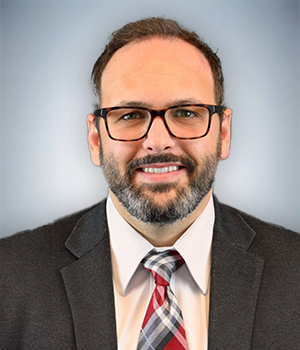
Whether you’re an executor, administrator, or beneficiary of someone’s estate, you need professional help to deal with the probate process, address any issues or disputes, and preserve your loved one’s legacy.
Our Portland real estate & probate lawyers at Dickson Frohlich Phillips Burgess are ready to help you and your family with any probate issues you may have. We can also assist with estate planning matters, such as drafting a will that will hold up in court and mitigate potential risks upon your passing.
No matter your legal needs regarding probate and the succession of your assets, we can help. Contact us today for a consultation at (971) 416-0881.



